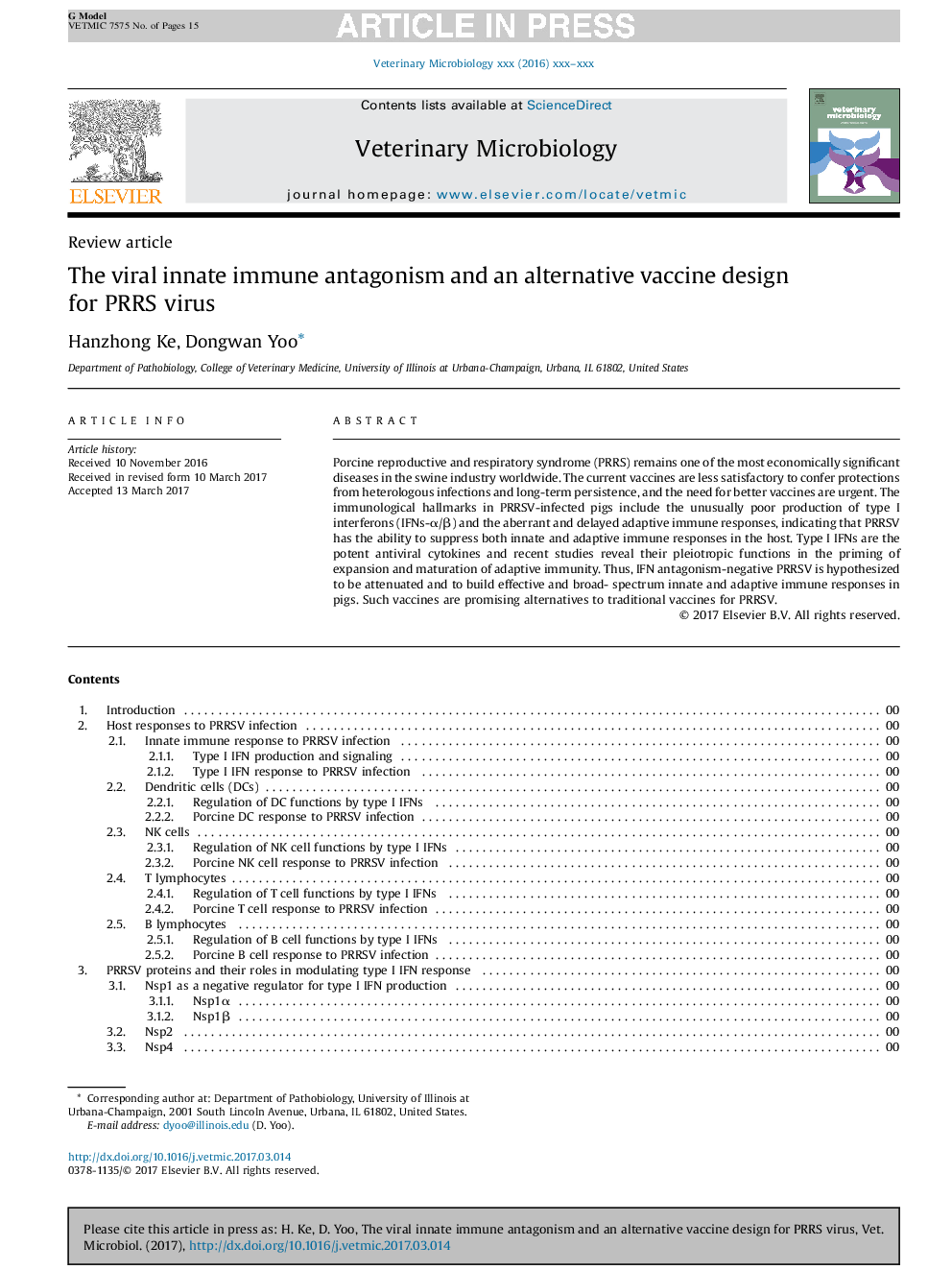| Article ID | Journal | Published Year | Pages | File Type |
|---|---|---|---|---|
| 5545104 | Veterinary Microbiology | 2017 | 15 Pages |
Abstract
Porcine reproductive and respiratory syndrome (PRRS) remains one of the most economically significant diseases in the swine industry worldwide. The current vaccines are less satisfactory to confer protections from heterologous infections and long-term persistence, and the need for better vaccines are urgent. The immunological hallmarks in PRRSV-infected pigs include the unusually poor production of type I interferons (IFNs-α/β) and the aberrant and delayed adaptive immune responses, indicating that PRRSV has the ability to suppress both innate and adaptive immune responses in the host. Type I IFNs are the potent antiviral cytokines and recent studies reveal their pleiotropic functions in the priming of expansion and maturation of adaptive immunity. Thus, IFN antagonism-negative PRRSV is hypothesized to be attenuated and to build effective and broad- spectrum innate and adaptive immune responses in pigs. Such vaccines are promising alternatives to traditional vaccines for PRRSV.
Related Topics
Life Sciences
Agricultural and Biological Sciences
Animal Science and Zoology
Authors
Hanzhong Ke, Dongwan Yoo,
